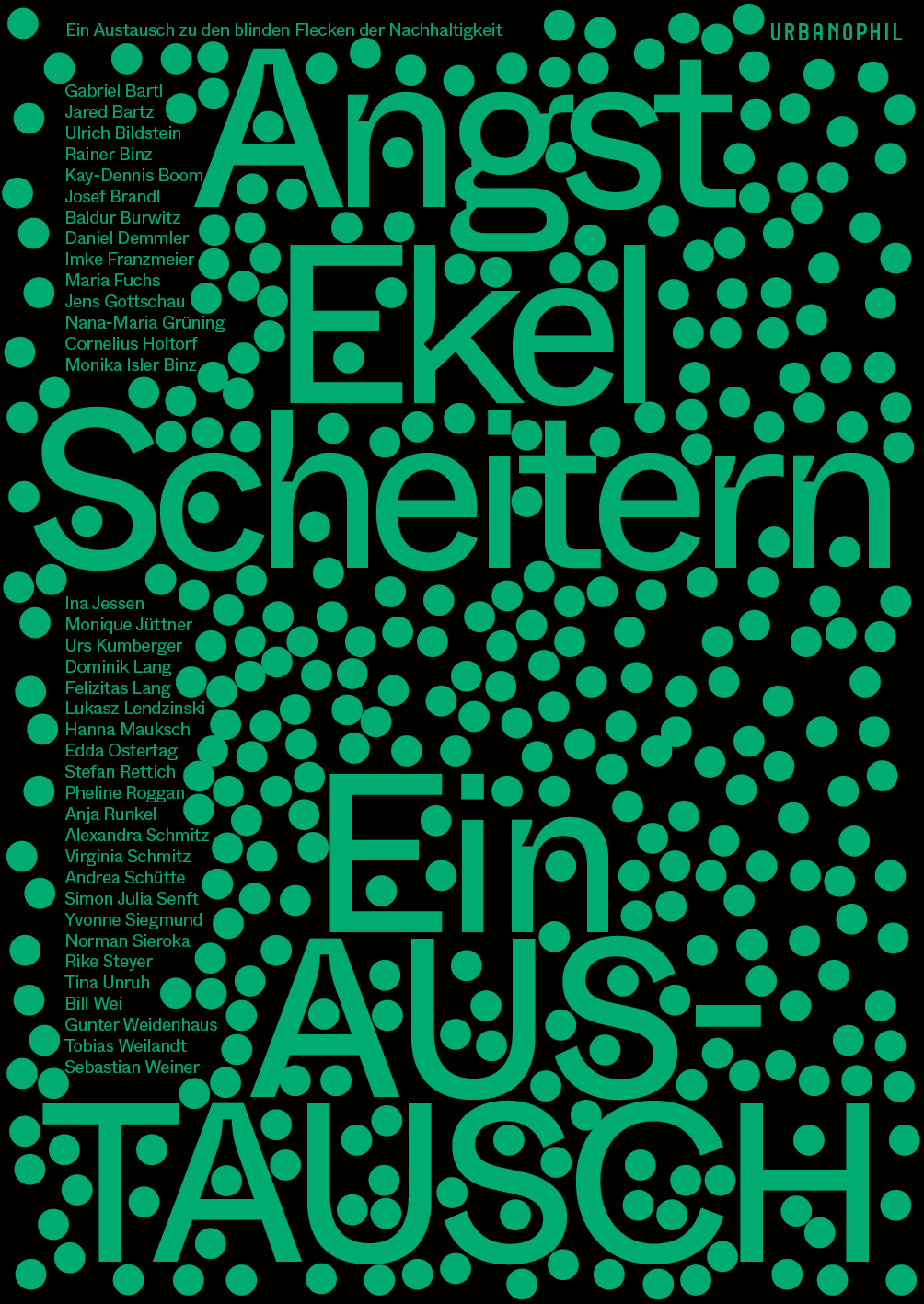
The relationship between man and nature is subject to constant change. While nature was long considered threatening and alien, the idea of man in harmony with nature developed in the 16th century. Another profound change in this relationship has been accompanied by industrialisation and rapid urbanisation since the 19th century. The relationship between humans and nature is becoming unbalanced and jeopardises the survival of many species, including humans, on this planet. The environmental debate that has been ongoing since the 1960s has only been able to change this to a limited extent. Rather, there seems to be a persistent inability – a ‘blind spot’ – to (re)establish and maintain socio-ecological relationships with our habitat. The urgent question arises as to how we can get closer to nature again and which strategies appear helpful for this.
Proceedings of the symposium Angst.Ekel.Scheitern Open Access available on Urbanophil.net
In Jessen, Ina & Ulrich Bildstein. 2023. Angst. Ekel. Scheitern. (Ed.) Yvonne Siegmund. DE: Urbanophil.
print
ISBN: 978-3-9824959-3-4
ebook
ISBN: 978-3-9824959-2-7